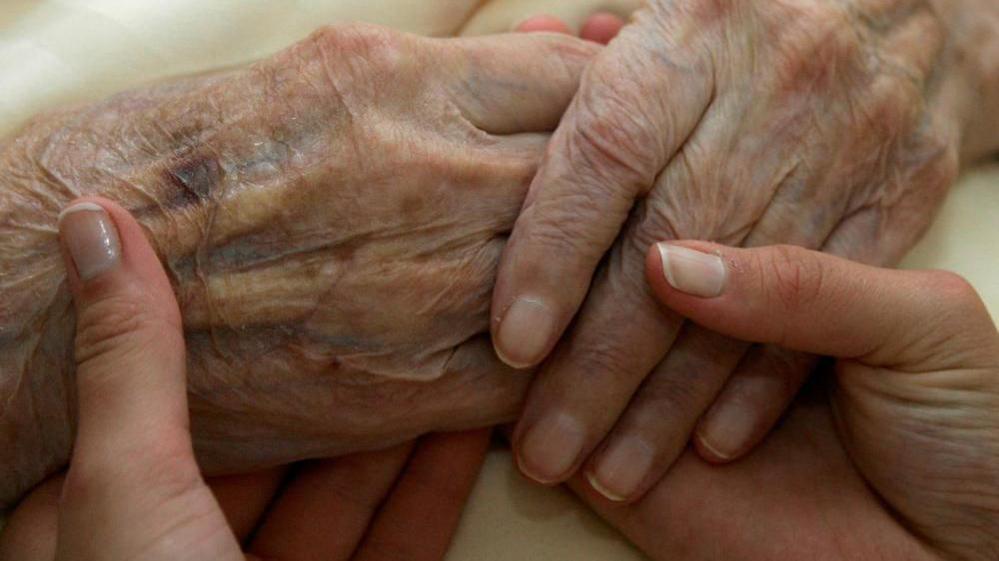Teenage girls face nearly a decade of unpaid caring

Teenage girls who are unpaid carers on Merseyside are expected to spend a longer time caring than others across the UK
- Published
Teenage girls in a town on Merseyside face spending almost a decade of their lives as an unpaid carer in the future, new figures have revealed.
The Office for National Statistics (ONS) has reported that young unpaid carers in St Helens can expect to spend as much as nine and a half years of their lives in the role.
Nationally the figure is an average of almost eight years, and it is just over five years for teenage boys who are unpaid carers.
The Carers Trust said the "alarming figures" showed how women and girls were "disproportionately shouldering the pressures of caring".
Unpaid carers, also referred to as informal carers, provide care to anyone because of long-term physical or mental ill-health or disability, or care needs relating to old age.
The new figures looked at the average number of years people who are expected to provide unpaid care beyond their current age between 2020 and 2022.
The top six areas for teenage girls with the highest number of years are:
St Helens, Merseyside - 9.6 years
Halton, Cheshire - 9.2 years
Torbay, Devon - 9.2 years
Knowsley, Merseyside - 9.1 years
Wirral, Merseyside - 9.1 years
Sunderland - 9.1 years
The boys' list also includes many of the same areas:
St Helens, Merseyside - 6.7 years
Knowsley, Merseyside - 6.7 years
Halton, Cheshire - 6.6 years
Sefton, Merseyside - 6.3 years
Sunderland, Tyne and Wear - 6.3 years
Telford, Shropshire - 6.3 years
Wrekin, Shropshire - 6.3 years
Torbay, Devon - 6.3 years
Wirral, Merseyside - 6.3 years
'Health and wellbeing'
While St Helens had the highest number for teenage girls, the lowest was in the London borough of Hammersmith and Fulham, at 5.6.
Similarly, for older people, women were found to face more time as an unpaid carer.
For people aged 50 between 2020 and 2022, women can expect to spend 4.7 years of their remaining lives providing unpaid care, while men face about 3.5 years of unpaid care.
Josephine Foubert, from the ONS, said the new analysis "shines a light on the health and wellbeing of unpaid carers".
Ramzi Suleiman, from the Carers Trust, called for action to be taken, adding: “These alarming figures show how women are disproportionately shouldering the pressures of caring."
The ONS said the figures were calculated by combining data on unpaid care collected in Census 2021, with death counts and mid-year population estimates.
Listen to the best of BBC Radio Merseyside on Sounds and follow BBC Merseyside on Facebook, external, X, external, and Instagram, external? You can also send story ideas to northwest.newsonline@bbc.co.uk, external